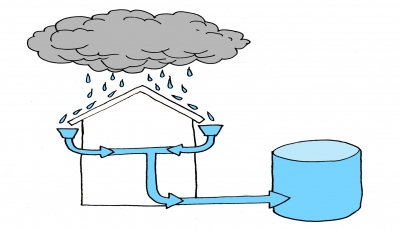Specialist Guidance on Reclaim Waste Liquid Waste Removal and Industrial Waste Water Treatment
Specialist Guidance on Reclaim Waste Liquid Waste Removal and Industrial Waste Water Treatment
Blog Article
Fostering Resource Effectiveness and Environmental Management With Liquid Waste Removal Programs
In the world of ecological stewardship, the administration of liquid waste stands as a vital juncture where source efficiency and environmental protection merge. Via a lens of positive interaction and tactical insight, the landscape of liquid waste administration reveals a tapestry of difficulties and opportunities that bid us to discover the course in the direction of a greener and more lasting future.
Significance of Liquid Waste Removal
The relevance of liquid waste elimination depends on its essential role in preserving environmental wellness and protecting public well-being. Liquid waste, otherwise properly taken care of, can posture severe risks to environments, water resources, and human health and wellness. Through reliable elimination processes, hazardous compounds such as contaminants, microorganisms, and chemicals are avoided from infecting the atmosphere and triggering harmful impacts.
Proper fluid waste elimination also aids in protecting against the spread of illness and reducing the capacity for groundwater contamination. By securely taking care of fluid waste, the danger of waterborne illnesses and pollution-related health concerns is substantially minimized - Reclaim Waste liquid waste removal. Furthermore, reliable removal techniques add to maintaining the general cleanliness and appearances of areas, therefore improving the lifestyle for citizens
In addition, fluid waste elimination plays an important duty in sustaining lasting development and guaranteeing compliance with environmental guidelines. By adhering to proper waste administration markets, businesses and protocols can decrease their environmental footprint and demonstrate business responsibility. Eventually, buying durable fluid waste removal programs is necessary for promoting environmental stewardship and cultivating a much healthier, more secure future for all.

Advantages of Effective Disposal
Efficient disposal of liquid waste not just safeguards ecological wellness and public health but likewise yields countless benefits that prolong beyond prompt control measures. One crucial benefit of efficient disposal is the reduction of pollution in water bodies and soil. By effectively handling fluid waste, the danger of contamination lowers, preserving environments and securing biodiversity. Furthermore, efficient disposal techniques add to source conservation. With procedures like reusing and power recuperation, valuable sources can be removed from fluid waste, advertising sustainability and decreasing the stress on raw materials. In addition, adopting efficient disposal techniques can result in set you back savings for companies and communities. By optimizing waste administration processes, organizations can enhance operations, minimize disposal expenses, and possibly generate profits through the sale of recycled materials. Generally, the advantages of efficient fluid garbage disposal are diverse, encompassing environmental protection, resource effectiveness, and economic benefits.
Technologies for Waste Treatment
Making use of innovative modern technologies for waste therapy plays an essential role in guaranteeing the effective administration and secure disposal of liquid waste. One of the key modern technologies utilized in liquid waste therapy is organic therapy. This method utilizes bacteria to break down natural matter in the waste, transforming it right into harmless byproducts. An additional common innovation is chemical treatment, where chemicals are contributed to the waste my blog to counteract hazardous elements or speed up contaminations for elimination. Physical therapy approaches, such as filtering and sedimentation, are also commonly used to separate solids from liquid waste.
Furthermore, thermal therapy approaches such as incineration can be used for the complete destruction of harmful elements in liquid waste. Overall, the combination of varied therapy innovations guarantees thorough and environmentally pleasant management of liquid waste.
Duty of Regulations and Conformity
In the realm of liquid waste monitoring, adherence to regulative frameworks and compliance requirements is critical for securing ecological health and wellness and sustainability. Rules play a vital duty in controling the appropriate handling, therapy, and disposal of liquid waste to stop damage to environments and human health and wellness. By developing clear standards and standards, regulatory bodies make certain that organizations and people included in fluid waste monitoring operate in an eco accountable manner.
Compliance with these policies is not just a lawful need but likewise an ethical obligation to safeguard the environment for current and future generations. It includes executing best techniques in waste collection, transportation, disposal, and therapy to minimize ecological effect and advertise resource performance. Non-compliance can lead to fines, lawful action, and reputational damages for organizations, highlighting the relevance of maintaining regulative standards.

Future Trends in Waste Monitoring

An additional key pattern in waste administration is the adoption of advanced information analytics and go right here fabricated knowledge to enhance waste collection paths, enhance sorting processes, and boost total operational efficiency. These technologies make it possible for waste monitoring business to make data-driven choices, leading to set you back financial savings and environmental benefits.
In addition, there is an expanding focus on the advancement of decentralized waste administration systems, such as onsite treatment centers and mobile waste processing devices. These systems use versatility and scalability, enabling more reliable waste handling in diverse environments.
Verdict
To conclude, fostering source efficiency and environmental management through fluid waste removal programs is crucial for lasting development. Effective disposal methods, progressed technologies for waste therapy, and stringent laws play crucial roles in decreasing environmental influence. Looking ahead, constant innovation and renovation in waste management techniques will be necessary for dealing with the expanding challenges of liquid garbage disposal.
In the realm of ecological stewardship, the monitoring of liquid waste stands as an essential juncture where source performance and environmental defense converge (Liquid waste removal).Utilizing innovative technologies for waste treatment plays a vital role in guaranteeing the efficient monitoring and safe disposal of fluid waste.In the world of fluid waste management, adherence to regulatory frameworks and compliance standards is extremely important for protecting environmental health and wellness and sustainability.In verdict, cultivating resource efficiency and useful link ecological defense through liquid waste removal programs is important for sustainable development. Looking ahead, continuous technology and improvement in waste monitoring techniques will certainly be essential for dealing with the growing challenges of liquid waste disposal
Report this page